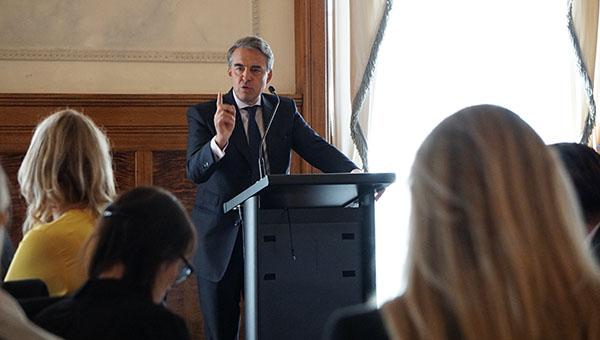No summer of love in Europe as air traffic delays double
18 July, 2018
2 min read


Travelers trying to get to their holiday destinations in Europe this summer are seeing more than double the air traffic control delays they experienced last summer.
The International Air Transport Association (IATA) has called on the governments and air navigation service providers of Europe to address the region’s airspace bottlenecks.
The IATA complaints echoes complaints by Ryanair about the inefficiency of the European air traffic control system and the delays it causes.
Read: Ryanair warns of European air traffic meltdown
IATA said data from Eurocontrol showed that air traffic management delays in the first half of 2018 more than doubled to 47,000 minutes per day.
This was 133 percent more than the same period last year.
The airline lobby group said most of the delays were caused by staffing and capacity shortages but weather delays and strikes were also a factor.
The average delay for flights delayed by air traffic control imitations hit 20 minutes in July, with the longest delay more than five and a half hours.
"We are in the summer season in Europe,’’ IATA director general Alexandre de Juniac said.
“Travelers want to get to their holidays on time. And too many will be disappointed because of air traffic delays.
We should be making progress, but delays are double those of last year.
“There is no quick fix for this year. But the needed solutions are well-known.
“With the correct investment and planning by governments and air navigation service providers (ANSPs) we can, and must, make next year better.’’
IATA estimates rising traffic in Europe has boosted earning at ANSPs but argues the air traffic managers have not invested in their businesses “preferring instead to make super-normal profits”.
It contends biggest service providers have either under-invested in staff or use outdated employment practices which don’t deploy staff when and where they’re most needed, resulting in unnecessary delays for passengers.
Many European ANSPs have also failed to make planned technology investments intended to increase capacity, it argues.
IATA has proposed a four-point plan that includes modernizing infrastructure and implementing the Single European Sky ATM Research (SESAR) as well as reforming outdated work practices.
Get the latest news and updates straight to your inbox
No spam, no hassle, no fuss, just airline news direct to you.
By joining our newsletter, you agree to our Privacy Policy
Find us on social media
Comments
No comments yet, be the first to write one.

